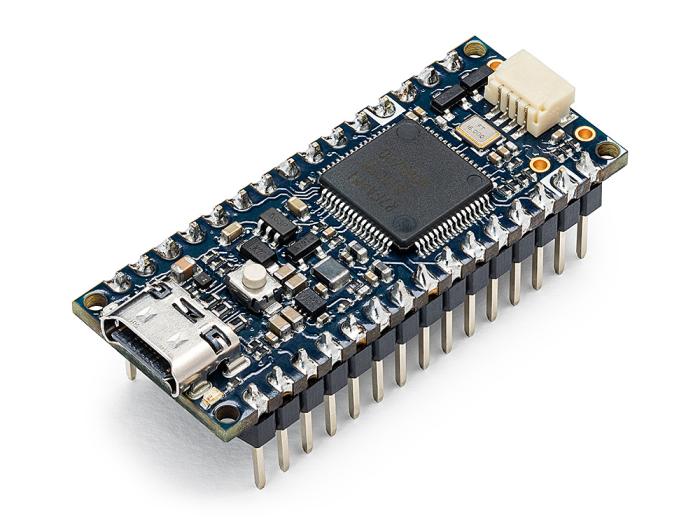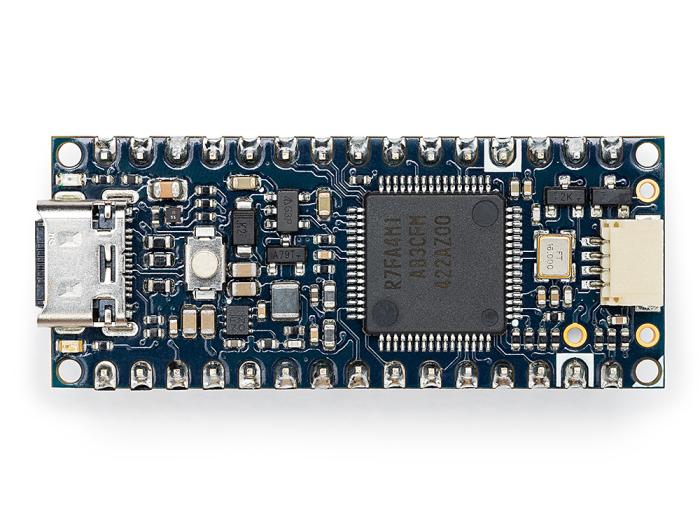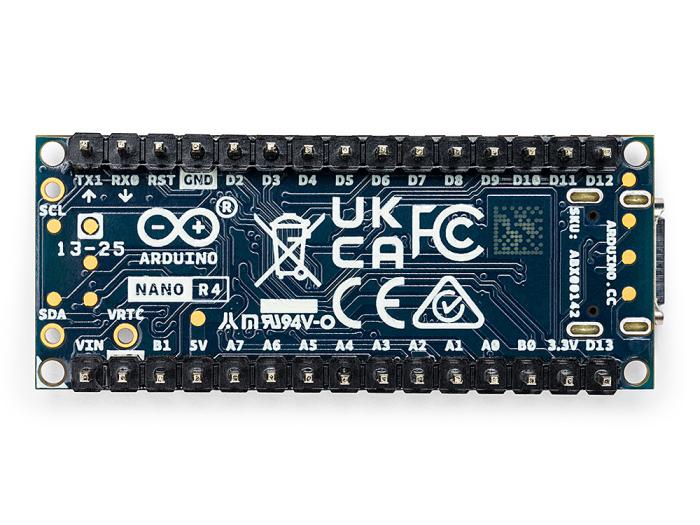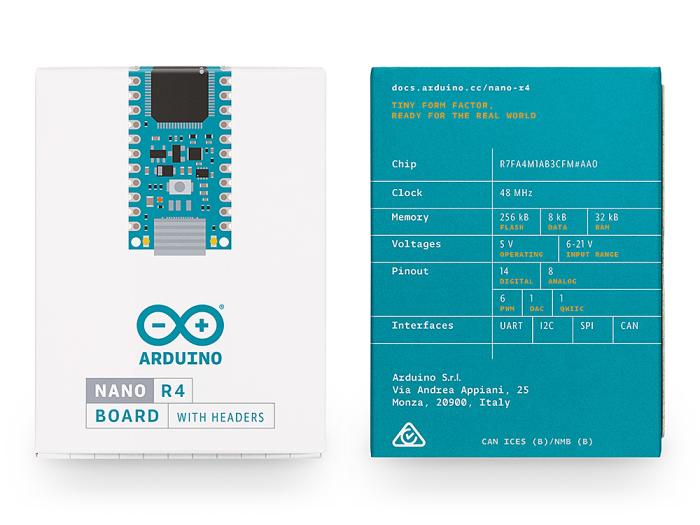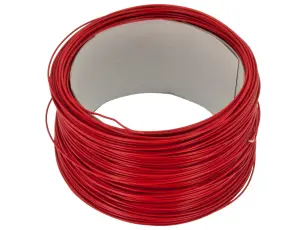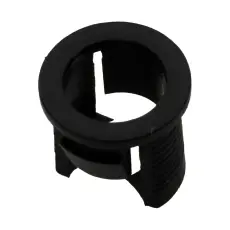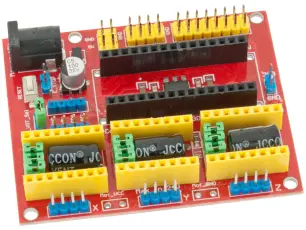Product description
Arduino Nano R4, version with pre-mounted pin headers. The Arduino Nano R4 combines the proven Nano form factor with the performance of a modern 32-bit microcontroller.
Smooth transition from prototype to production: Leverage the RA4M1 microcontroller, already established in the UNO R4 family, with minimal code adjustments.
Compact, production-ready design: Small footprint of 45 × 18 mm, with castellated connections and components mounted on a single side, making it easy to integrate onto a custom PCB.
Easy expansion: The built-in Qwiic connector (3.3 V logic) and an additional I²C port (5 V logic) enable seamless connection to a wide range of sensors and actuators, including external Qwiic modules.
Flexible and familiar platform: Take advantage of Arduino’s extensive ecosystem, intuitive development environment, and strong community support.
Specifications:
- Microcontroller: Renesas R7FA4M1AB3CFM, ARM® Cortex®-M4 with floating-point unit (FPU), 48 MHz
- Memory: 256 kB Flash, 32 kB SRAM, 8 kB EEPROM
- Power supply: 5 VDC (via 5V pin or USB-C)
- Alternative Power supply: 6–21 VDC (VIN pin)
- Output voltage: 3.3 V via 3.3V pin (board cannot be powered from 3.3 V)
- Logic voltage: 5 V (I/O), 3.3 V (Qwiic - I²C)
- USB-C: Used for both programming and power supply
Ports & Communication:
- 22 I/O in total: 14 digital I/O (incl. 6 PWM) and 8 analog channels (incl. DAC)
- 12-bit DAC: on A0
- Integrated OPAMP: on A1, A2, and A3
- Interfaces: UART, SPI, I²C (5 V logic), secondary I²C via Qwiic connector (3.3 V logic)
- CAN controller: available on D4 and D5
- RTC: Real-time clock with support for external backup battery 1.6–3.6 V (e.g. CR2032)
Dimensions & Design:
- Board size: 18 × 45 mm
- Design: Components on a single side and castellated connections for smooth integration onto a custom PCB.
Advantages & Applications:
- Increased performance and memory resources: compared to older Nano models (Cortex-M4, 48 MHz, FPU, expanded RAM and Flash).
- Compatibility: Same form and pin layout as previous Nano versions, expanded with a Qwiic connector and broad support for external Qwiic modules from manufacturers such as Electrokit, Sparkfun, Adafruit, and Arduino Modulinos.
- Versatile platform: With DAC, OPAMP, RTC, and CAN support, the Nano R4 is a powerful choice for embedded systems, automation, IoT, edge computing, and rapid prototyping.

